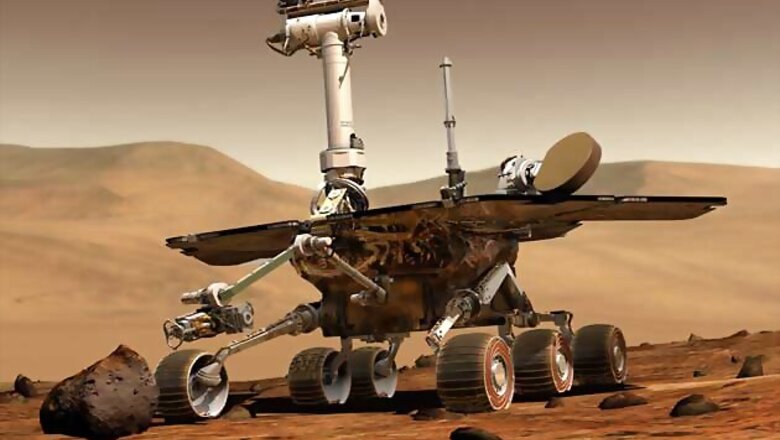
views
Dr Amitabha Ghosh holds the chair of the science operations working group at NASA Mars Exploration Rover Mission and is a key member of the team that zeroed in on the Gale crater location where Curiosity landed on Monday morning. He interacted with IBNLive readers in a live web chat. We bring you some of the interesting snippets of the interaction.
On the objective of the mission:
"Curiosity will look for organic molecules on Mars. From previous NASA missions, we know that water exists on Mars today: at the poles and at the subsurface. The next step in tackling the question of life on Mars is to ascertain whether organic compounds exist on Mars. It's difficult to predict the scientific results beforehand, but from an engineering standpoint, I feel that Curiosity will herald an era of effective as well as inexpensive method of exploring other planets using rovers and other robotic vehicles. From the scientific standpoint, it is possible that Curiosity will find organic compounds on Mars.
We have 13 instruments which will help address the scientific question. Imagine you are a geologist on Mars. The spacecraft is like a robotic geologist. The instruments will provide scientific data on mineral composition, on geology, about atmospheric conditions of Mars. Indeed, it will ascertain the presence of water, it will provide the composition of minerals too."
On prospects of a manned mission to Mars:
"We can expect that probably by 2050. The technology exists but the money doesn't. A manned mission will take, say $1 trillion. Unless the cost goes down, I think a manned mission will be extremely ambitious."
What powers Curiosity on Mars surface:
"Curiosity (the rover that just landed) operates on nuclear power. Opportunity (the rover that landed in 2004 and is operational on Mars at present) uses solar power."
If plants can grow on Mars:
"There are scientific experiments designed to test whether earth plants can grow on Mars. This concept is called terraforming. Possibly, they might grow in greenhouses. Unfortunately, no spacecraft mission has tested whether this is possible. Maybe this will happen in future!"
If it is possible to introduce lifeforms like bacterias on Mars:
"Yes, we can. But, I don't know whether we will. On somewhat similar lines, there is a theory called panspermia which holds that life on Earth was introduced from space. If that is true, it is possible that life on Earth can travel to other planets as well."
How to join NASA:
The best bet is to pursue a career in the sciences or in technology, try going to graduate school at a top US University. After a PhD at a good US University, try working for a NASA-funded project. I think what NASA looks for is creativity and there can be no test for that. Can you think and come up with a new way to solve the problem? That's the only criterea that counts. You may top in an exam but if you are not creative, you will not be able to do well in NASA. It will be great if you like Astrophysics. You should pursue it with passion."


















Comments
0 comment